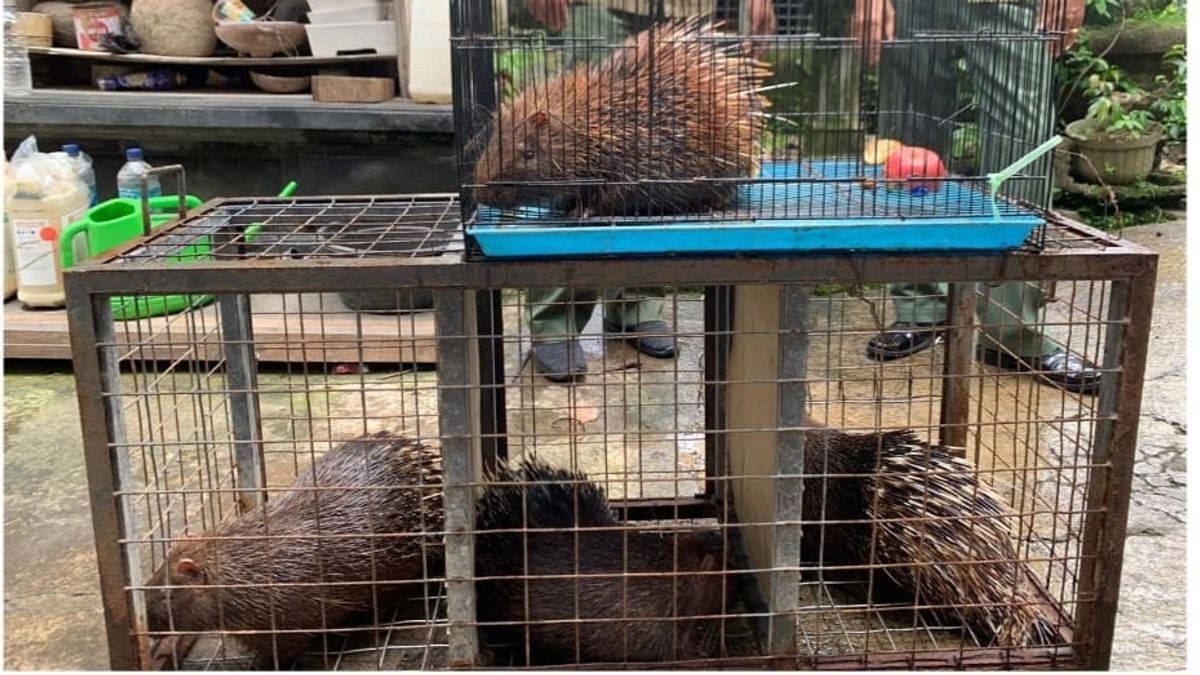Nyoman Sukena, a Balinese citizen, never thought that saving four Javan porcupines would drag him into legal trouble. His good intentions to care for protected animals did not provide any personal gain, but ended in a criminal case. This case is a clear example of legal injustice in Indonesia, where people who do not understand the rules often become victims.
After being named a suspect, Sukena explained that he did not intend to trade the animals. As a layman, he did not understand the rules for protecting wildlife. This ignorance resulted in a heavy legal charge, showing how harsh the legal system is on people who are less educated and poor.
This case highlights the irony of legal injustice. Sukena, a simple man, is threatened with punishment simply because of his good intentions. The law should take into account a person's social and educational background, not just enforce the rules without considering the context.
Fortunately, public and media pressure helped Sukena escape punishment. This proves that the voice of the public can influence the course of the law. This case has become a widespread discussion, not only because of its legal aspects, but also because of the injustice that was felt.
Sukena's case should be a momentum for the government to implement more restorative justice, an approach that focuses on recovery and education, not just punishment. Instead of punishing Sukena, he should be given education about animal protection. This is more humane and educational than simply punishing someone with good intentions.
However, the prosecutor chose the criminal path rather than education. This raises the question: has the government sufficiently socialized the rules of law? If the public does not understand the law because of minimal education, is it fair to punish them for that ignorance?
This case is not the first. Previously, Grandma Asyani was also sentenced for being accused of stealing teak wood, even though she did not understand the rules. Like Sukena, Grandma Asyani became a victim of a legal system that was rigid and unresponsive to the realities of society.
The injustice experienced by Sukena and Grandma Asyani should be a lesson for us all. The law should protect the weak, not punish them for their ignorance. If the law is unable to protect, then it has failed to carry out its function.
Sukena's release is indeed worthy of appreciation, but it is not enough. This case must be the starting point for more inclusive and just legal reform. The government must actively disseminate legal regulations, especially in remote areas, so that less educated people can understand the law. The restorative justice approach must be a priority, so that justice does not only mean punishment, but also understanding and improvement.
The Sukena case reflects how urgent legal reform is in Indonesia. The community needs to support more inclusive and just legal reform. Just legal reform aims to create a legal system that is open and fair to all levels of society, including those who are less educated. The focus must be on recovery, not just punishment. This reform aims to eliminate inequality in law enforcement and create equal access and understanding for all citizens.
The restorative justice approach needs to be applied more widely, so that the law is not just a tool for punishment, but also educates and improves. If we do not move for change, legal injustice will continue, and more "Sukena" will become victims.
A good law is a law that protects, not one that punishes without considering the situation and conditions.
The English, Chinese, Japanese, Arabic, and French versions are automatically generated by the AI. So there may still be inaccuracies in translating, please always see Indonesian as our main language. (system supported by DigitalSiber.id)











